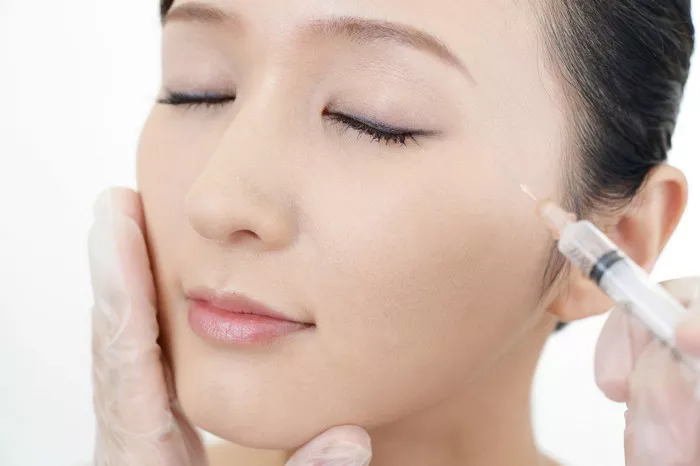Hormone replacement therapy (HRT) patches are a common treatment for menopausal symptoms, such as hot flashes and vaginal dryness. While HRT patches can be effective, they may not provide all of the necessary nutrients that the body needs. In this article, we will explore what vitamins can be taken with HRT patches to support overall health and well-being.
What are HRT Patches?
Hormone replacement therapy (HRT) patches are a type of treatment for menopausal symptoms. They work by delivering a steady dose of hormones, such as estrogen and progestin, through the skin. HRT patches can be effective for reducing symptoms like hot flashes, night sweats, and vaginal dryness.
While HRT patches can be effective for managing menopausal symptoms, they may not provide all of the necessary nutrients that the body needs. This is why it’s important to consider taking vitamins with HRT patches to support overall health and well-being.
Vitamins to Take with HRT Patches
Here are some of the key vitamins to consider taking with HRT patches:
Vitamin D: Vitamin D is important for maintaining healthy bones and teeth. It helps the body absorb calcium, which is important for bone health. Women who are going through menopause may be at increased risk of osteoporosis, so taking vitamin D can be particularly important.
Calcium: Calcium is important for maintaining healthy bones and teeth. Women who are going through menopause may be at increased risk of osteoporosis, so taking calcium can be particularly important.
Vitamin B12: Vitamin B12 is important for maintaining healthy nerve cells and red blood cells. It also helps the body produce DNA, the genetic material in cells. Women who are going through menopause may be at increased risk of vitamin B12 deficiency, so taking vitamin B12 can be particularly important.
Vitamin E: Vitamin E is important for maintaining healthy skin and eyes. It also has antioxidant properties, which can help protect the body against damage from free radicals. Women who are going through menopause may be at increased risk of skin aging and other age-related conditions, so taking vitamin E can be particularly important.
Magnesium: Magnesium is important for maintaining healthy bones and muscles. It also plays a role in nerve and muscle function, as well as regulating blood sugar levels. Women who are going through menopause may be at increased risk of magnesium deficiency, so taking magnesium can be particularly important.
Factors to Consider When Taking Vitamins with HRT Patches
When taking vitamins with HRT patches, there are several factors to consider. Here are some things to keep in mind:
Nutrient needs: The specific vitamins that are needed can vary depending on individual nutrient needs. It’s important to talk to your doctor to determine which vitamins are right for you.
Dosage: The recommended dosage of vitamins can vary depending on individual needs. It’s important to follow the recommended dosage instructions carefully to avoid potential side effects.
Food sources: While taking vitamins can be helpful, it’s important to also eat a healthy, balanced diet that includes a variety of nutrient-rich foods.
Medications: Some vitamins can interact with certain medications, so it’s important to talk to your doctor before taking any new vitamins.
Quality: Not all vitamins are created equal. Look for high-quality vitamins that have been tested for purity and potency.
Potential Side Effects of Taking Vitamins with HRT Patches
While taking vitamins with HRT patches can be beneficial for overall health and well-being, there are some potential side effects to be aware of. Here are some of the most common side effects:
Upset stomach: Some people may experience nausea, vomiting, or diarrhea when taking vitamins.
Constipation: Some vitamins, such as calcium, can cause constipation in some people.
Allergic reactions: Some people may be allergic to certain vitamins, leading to allergic reactions like hives or difficulty breathing.
Interactions with medications: Some vitamins can interact with certain medications, leading to potential side effects or reduced effectiveness of the medication.
If you experience any of these side effects, stop taking the vitamins and talk to your doctor.
Conclusion
HRT patches can be an effective treatment for menopausal symptoms, but they may not provide all of the necessary nutrients that the body needs. Taking vitamins with HRT patches can help support overall health and well-being. When taking vitamins with HRT patches, it’s important to consider individual nutrient needs, dosage, food sources, medications, and quality. While taking vitamins can be helpful, there are some potential side effects to be aware of. If you experience any side effects, stop taking the vitamins and talk to your doctor.
[inline_related_posts title=”You Might Be Interested In” title_align=”left” style=”list” number=”6″ align=”none” ids=”4714,4708,4670″ by=”categories” orderby=”rand” order=”DESC” hide_thumb=”no” thumb_right=”no” views=”no” date=”yes” grid_columns=”2″ post_type=”” tax=””]


































